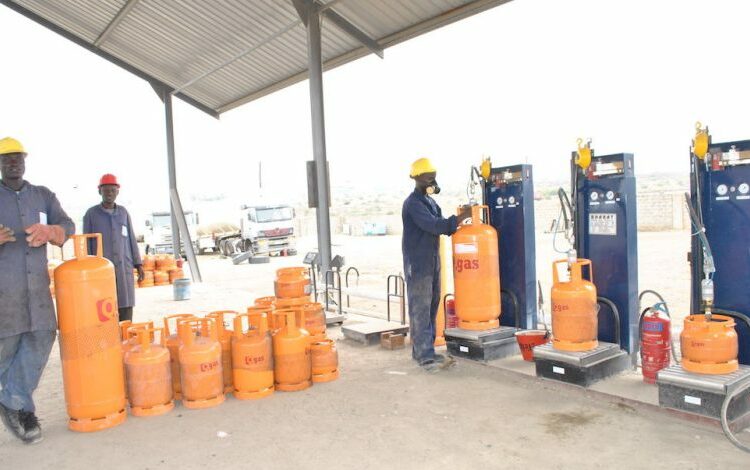Further surge in cooking gas prices is looming due to a significant decline in supplies from the Nigeria Liquefied Natural Gas (NLNG).
The operational crisis at NLNG Limited continues to deepen as the outage at its Bonny Island facility drags on, with gas supplies plummeting by a staggering 80 per cent.
The NLNG, a major supplier of Liquefied Petroleum Gas (LPG), has seen its supply drop by 80 per cent, exacerbating existing shortages and driving up costs for consumers.
People familiar with the matter told Bloomberg on Tuesday that natural gas supplies to NLNG Ltd. have fallen 80 per cent to one-fifth of the massive plant’s needs.
This prolonged disruption, triggered by persistent pipeline vandalism, raises serious concerns about Nigeria’s ability to meet its export commitments and potential impact on its economy.
Data compiled by Bloomberg showed declining output from Nigeria’s only LNG facility could trigger higher spot prices as global supply to Asia and Europe tightens.
Europe, which relies on NLNG for a substantial portion of its gas imports, is particularly vulnerable to supply disruption.
“In 2024, almost half of Nigeria’s LNG exports went to Asia, with another third going to Europe and the remaining to the Americas and Middle East,” Bloomberg data showed.
Managing director of NLNG Limited Philip Mshelbila, emphasised that the company has struggled to meet global demand for liquefied natural gas because of the damage caused by illegal pipeline connections.
“At the current moment, I am only running two trains out of six,” Mshelbila lamented at a panel session during this year’s Nigeria International Energy Summit.
The NLNG boss also called for a reevaluation of energy security, highlighting that while progress has been made in securing oil infrastructure, the situation for gas is becoming precarious.
“Energy security has to be seen as important as national security. However, gas security has deteriorated, and until we can safeguard these pipelines, we will continue to underperform,” he said.
The NLNG, a key player in the global liquefied natural gas (LNG) market, has been grappling with the fallout of repeated attacks on critical gas pipelines supplying its facility.
These attacks, often attributed to militant groups and criminal syndicates operating in the Niger Delta region, have severely hampered the company’s operations, forcing it to shut down a significant portion of its production capacity.
This comes at a time when global energy markets are already facing volatility due to geopolitical tensions and supply chain disruptions, further exacerbating an already tight global gas market.
The economic implications for Nigeria are also substantial. NLNG is a major revenue generator for the country, contributing billions of dollars annually to the national treasury.
The prolonged outage translates to significant losses in export earnings, impacting government revenue and foreign exchange reserves at a time when the nation can ill afford it.
Nigeria’s LNG exports declined by 40 per cent in February from the previous month, data compiled by Bloomberg show.
Experts have warned that the persistent attacks on NLNG’s gas supply pipelines could jeopardise its projected dividends of N727 billion to the Nigerian government by 2025, a 113 percent growth from N346 billion last year.
Available data showed that the federal government has received about $21.56 billion of the $44 billion dividends disbursed by NLNG in the last 25 years.





